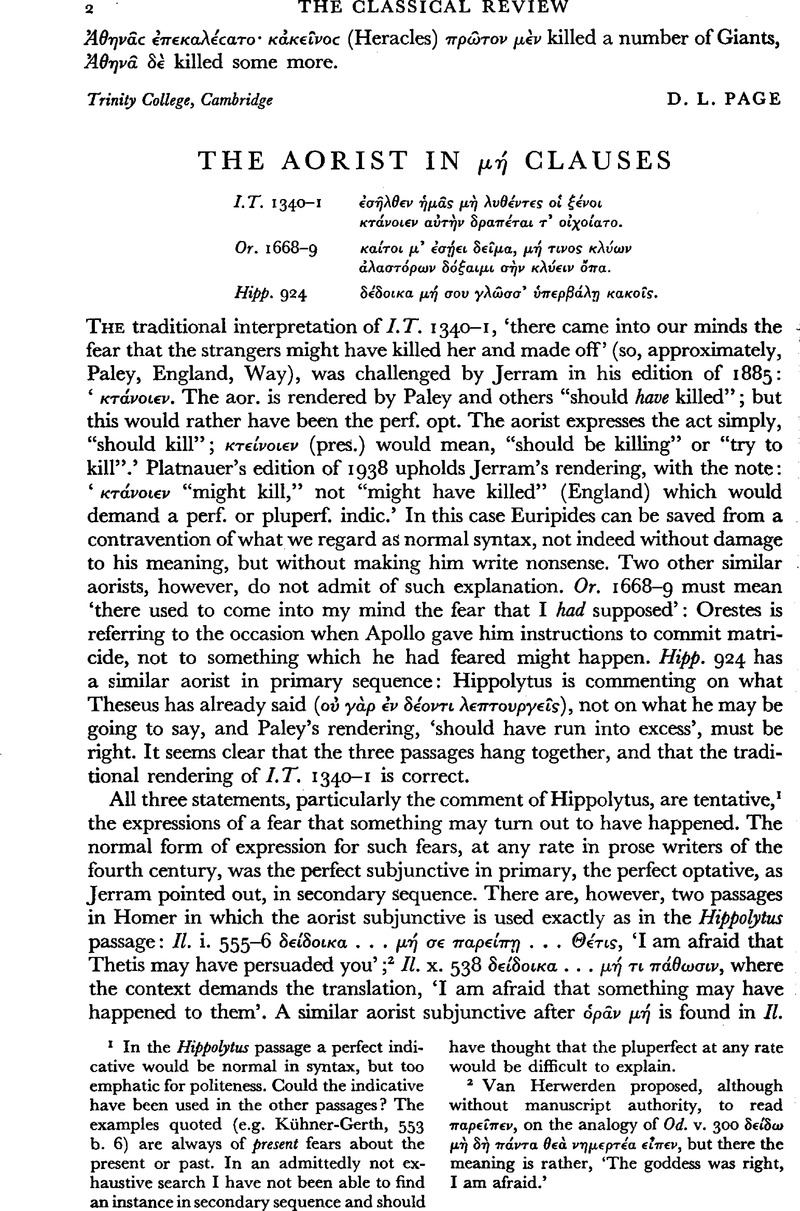No CrossRef data available.
Published online by Cambridge University Press: 13 February 2009

1 In the Hippolytus passage a perfect indicative would be normal in syntax, but too emphatic for politeness. Could the indicative have been used in the other passages? The examples quoted (e.g. Kühner-Gerth, 553 b. 6) are always of present fears about the present or past. In an admittedly not exhaustive search I have not been able to find an instance in secondary sequence and should have thought that the pluperfect at any rate would be difficult to explain.
2 Van Herwerden proposed, although without manuscript authority, to read παρεῖπεν, on the analogy of Od. v. 300 δε⋯δω μ⋯ δ⋯ π⋯,νηα θε⋯ νημρτ⋯α εἰ πεν, but there the meaning is rather, ‘The goddess was right, I am afraid.’